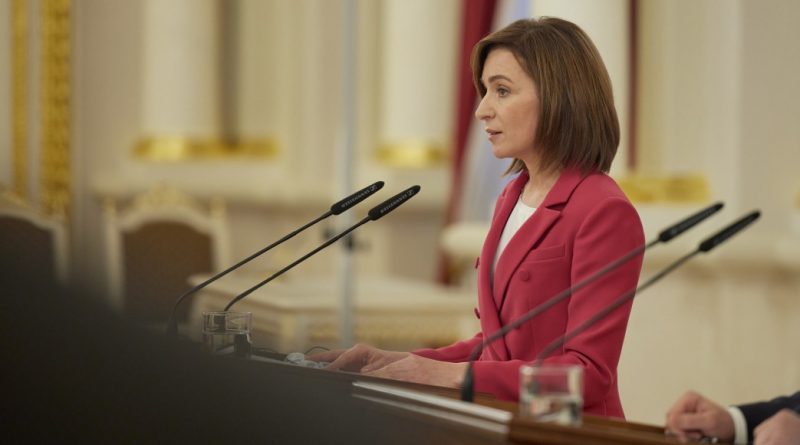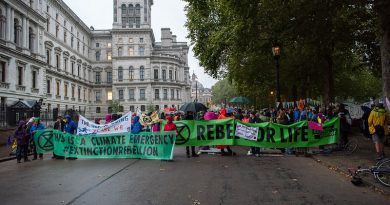FOCUS on Growing Protests: Moldova
Madeline Field
Staff Writer
The world’s eyes are on the war in Ukraine- escalatory threats by Russian leaders indicate that Moscow is open to using tactical weapons, indicating the conflict has reached a tipping point.
Often ignored in this situation, however, is Ukraine’s closest neighbor: Moldova. Moldova, a country of 2.6 million, is just a border away from extreme violence and has taken in hundreds of thousands of Ukrainian refugees.
According to Reuters, global protests aimed at rising inflation and unaffordable gas prices have reached Moldova. Euractiv reports that Russian gas companies have threatened to stop gas supplies due to alleged Moldovan nonpayment, worsening the state of the country’s struggling economy and angering political groups that criticize Moldova’s dependence on Russian energy. Protests have broken out across the country. In Chisinau, the capital, an illegal tent city grew large enough to block traffic.
President Maia Sandu called on parliament to grant security forces special powers to shut down the street protests that began September 19, Radio Free Europe reports. According to Radio Free Europe, Sandu directed her complaints at pro-Russian leaders, accusing local administrators of “sabotaging the country’s stability,” and stating that “betrayal of the motherland will be severely punished.” The tent protest, which blocked traffic on Chisinau’s busiest road, was finally cleared by police, reports Balkan Insight. Daily protests outside of the presidency building and parliament have continued.
These protests differ from the others in Europe, as they are not largely populist. Rather, they are the cunning political work of an exiled billionaire aligned with Russian interests, Ilan Shor. Balkan Insight states that Shor fled to Israel after a 2017 conviction for stealing more than a billion USD, roughly one-sixth of Moldova’s yearly GDP, from private banks. Despite his exile, Shor is intimately involved in Moldovan politics. Various domestic news outlets have alleged that Shor and his party, the Ilan Shor Party, orchestrated the protests by busing in dozens of people from outside cities and paying for their participation with money, food, and drinks.
Shor’s manipulation underscores the complex political dynamics within Moldova, a country whose brief history has been marred by corruption scandals and ineffective governance.
These ongoing issues have stemmed from Moldova’s deep ties to both Russia and Western-facing Romania, according to the Carnegie Endowment for International Peace. While much of Moldova is ethnically Romanian, the country was declared the Moldavian Soviet Socialist Republic after World War II by the Soviet Union. During this period, thousands of ethnic Moldovans and Romanians were exiled and had their culture suppressed, inhibiting the formation of a Moldovan nationalist identity.
Upon the collapse of the USSR, Moldova experienced strong pulls from both Romania and Russia, but particularly from Russia. The Carnegie Endowment for International Peace continues that Russia has long expressed a desire to keep Moldova close. Attempts to control the country have included “periodic threats to use economic leverage,” moves to “bring Moldova into Moscow’s integrationist schemes,” and even “a recent alleged assassination attempt” upon an oligarch.
After Moldova declared independence in 1991, there were calls by many ethnic Romanians to make Moldova into a Greater Romania. In response, Russian and Turk minorities launched their own secessionist movements, creating the Transnistrian Republic and Gagauzian autonomous region in 1990. According to CNN, roughly a little under a fifth of Moldova’s population lives in Transnistria, and the region has its own military, Independence Day, Moldovan-Cyrillic language, and government.
According to the Carnegie Endowment for International Peace, Transnistria’s existence has never been particularly troubling to ordinary Moldovans- until now. Transnistria is strategically important to Russia given its proximity to Western Ukraine, and it has roughly 1,500 troops stationed there.
The troop presence in Transnistria has allegedly caused significant tension between the two countries. According to TRT World, Moscow accused Moldova of messing with Russian troop rotations and supplies in July, warning the country that further provocation would result in conflict. On a grander scale, Russian troop presence in such proximity to Western Ukraine raises logical concerns that a third offensive could be launched from Transnistria.
Domestically, tensions are rising in Moldova, and it seems recent protests are merely a symptom of the challenges the small country will soon face. The Times of Israel reported that Sandu, who is pro-West, has not shied from criticizing Russia and Putin’s war on Ukraine. Sandu’s government, along with Ukraine, officially applied for European Union membership this summer, a move that allegedly angered Russia.
These protests and escalating tensions have set the stage for a serious domestic conflict in Moldova. Without the greater economic and political support of the European Union, it will be difficult for Sandu to justify isolation from Russia, especially with winter coming. Expedited admission into the EU and access to member state’s energy reserves are crucial to ensuring Moldova no longer needs to turn to Russia.
Image courtesy of President office of Ukraine


